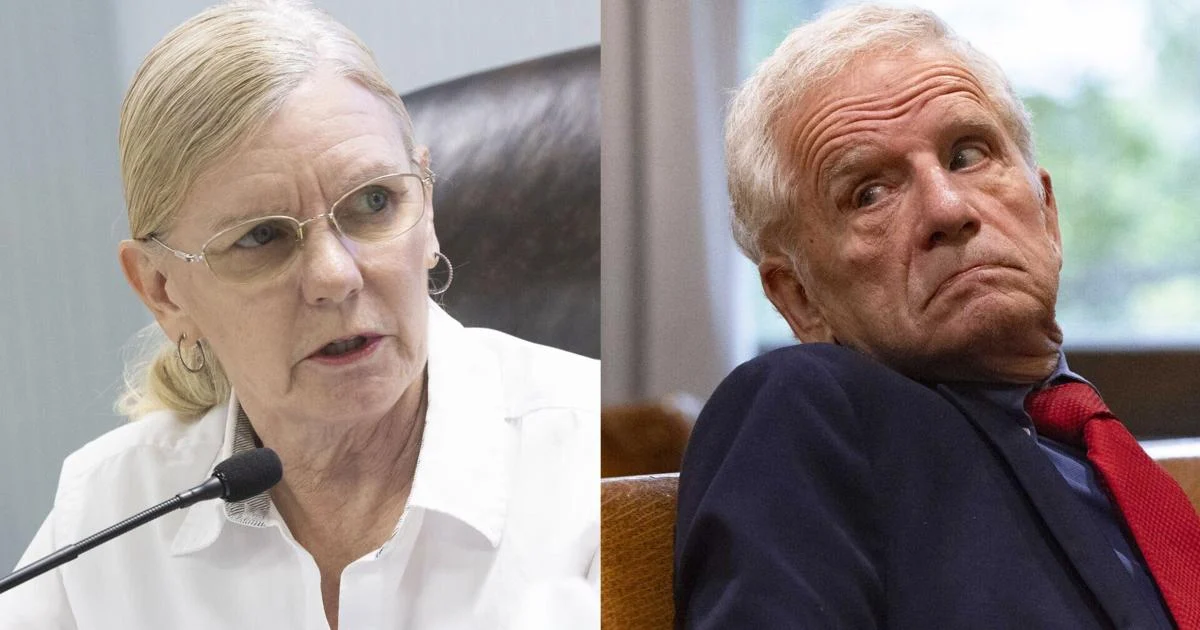
Editor’s note:Keep up with live updates as Michigan budget talks make progress to avoid government shutdown.
With state lawmakers poised to pass the Oct. 1 deadline without a final budget package, school leaders across Michigan may be bracing for how the next couple of days will affect the state’s K-12 students.
Gov. Gretchen Whitmer, Senate Majority Leader Winnie Brinks and House Speaker Matt Hall released a joint statement early in the evening Tuesday, Sept. 30, promising to avoid a government shutdown on Wednesday while legislators finalize a budget deal.
Wednesday marks the start of the state’s fiscal year. The expectation, Whitmer, Brinks and Hall said, is that a budget will be adopted later this week.
While a deal appears imminent, so far, only a few details about what the coming budget deal will mean for State School Aid have been shared. Education advocates say the financial limbo sustained by local districts over the last couple of months continues with a mix of messaging being shared with Michigan school communities.
“They’re being put in a position where they have to weigh into politics … or where they don’t feel it’s their right to, quite frankly, because they represent their districts in a different capacity,” Rachelle Crow-Hercher, director of the Michigan Education Justice Coalition, said of school administrators on Tuesday night.
The coalition and other organizations hosted a rally “to fund the damn schools” on the steps of the Capitol Tuesday with a series of speakers whose comments were mixed with chants of, “Our kids can’t wait.”
“Districts are freezing hiring, delaying programs, and considering cuts,” said Tonya Whitehead, president of the Michigan Parent-Teacher Association. “Families and educators are left in limbo and the ones who suffer most are not the politicians — it’s our kids.”
Lawmakers failed to meet an initial budget deadline July 1 when local public schools’ fiscal year first began.
Since then, advocates say schools have operated on assumptions of what the yet-to-be adopted budget and State School Aid will include.
The state’s Republican-led House and Democratic-majority Senate passed conflicting school aid proposals earlier this year that each increased per-student funding but varied widely on whether to retain supplemental school support funds, often called “categoricals.”
This week, lawmakers said the budget deal would include record per-student funding and maintain universal free breakfast and lunch for students — an outspoken priority for Whitmer and state education officials.
Previously, GOP lawmakers have said their budget proposal freed up more school support funds to be utilized by local districts as they choose instead of tying the funds to categoricals.
During Tuesday’s event outside the Capitol, Whitehead pointed to the categoricals, imploring legislators to continue to prioritize funds for specific needs, such as English-language learners, special education and at-risk students “because accountability matters.”
Local districts have shared different expectations in notices to families while lawmakers work to finalize a budget deal, particularly surrounding school meals.
Free meals have been funded for two years with a mix of state and federal funds.
The state House’s earlier proposal did not include the state’s portion, and without state funds, only the federally supported free or reduced meals program would be available for eligible students as opposed to all students.
Some districts like Rochester Community Schools advised families on social media Tuesday that all students would be provided meals “free of charge” through Friday, Oct. 3, citing “a reasonable expectation that the Michigan School Meals program will continue.”
Meanwhile, others notified families that students who do not qualify for free or reduced would need to purchase lunch starting Wednesday. That was the case for Midland Public Schools, though the district announced all students would still receive breakfast free of charge.
“We understand that these changes caused by a lack of state budget may be stressful for you and your family,” Midland Superintendent Penny Miller-Nelson wrote Tuesday. “Please know that we are closely monitoring this ongoing situation.”
Crow-Hercher said it was that sort of mix of uncertainty that weighed on some families and school leaders alike.
Despite promises from legislative leaders, she said they also need to “hold space for the idea” that districts are preparing for the worst-case scenario — even if many have held back from divulging contingency plans while waiting on the state.
A few districts have hinted at the financial constraints amid the budget gridlock, and many encouraged families to write their state representatives to demand action.
One of those was Dexter Community Schools in Washtenaw County.
“Dexter is in a fortunate position to keep things running smoothly for a month or so, thanks to a healthy fund balance,” the local school board wrote in mid-September. “However, this isn’t the case for most districts across the state. Legislators need to acknowledge that a state government shutdown could delay critical State Aid payments to school districts, immediately jeopardizing districts’ ability to meet financial obligations.”
Some districts, Crow-Hercher said, may still be bracing for a shutdown or missing the next school aid payments come Oct. 20, and where needed, borrowing funds to make ends meet.
“That is essentially less money that’s going to be available in classrooms later,” she said.



